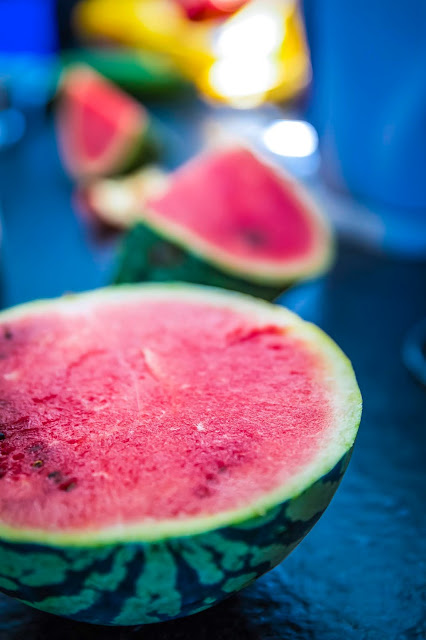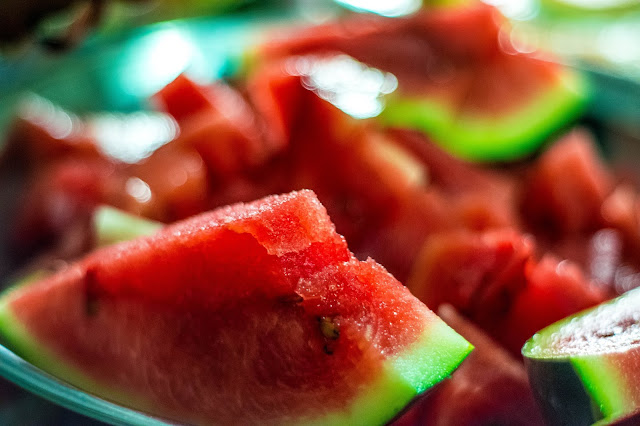The fruit is known to promote the production of antioxidants, which in turn reduce the risk of heart disease, diabetes and cancer. The fruits are also said to help normalize blood pressure, and the antioxidants are known not only to lower the risk of stroke, but also to lower blood pressure.
It may not have as much fiber as other fruits, but it has low calorie and fat content and is high in water. Now we look at the nutritional values of watermelon. What is the meaning of watermelon as a fruit?
The refreshing fruit is saturated with nutrients and has a juicy bite, but the water, according to nutritionists, makes it healthy and nutritious. One cup of diced watermelon contains the recommended daily value of 1.5 grams of water per serving of fruit and vegetables.
It's rich in a variety of important vitamins and minerals and also contains a lot of potassium, "said Dr. Mary-Ann B. Smith, a nutritionist at the University of California, Davis. Watermelon can also help with weight loss by promoting satiety and curbing cravings, while also pursuing health goals. The low calorie content of watermelon is due to the fact that the fruit is fat-free and low in calories, making it a good source of protein, fiber, vitamins, minerals and antioxidants.
A study published in the International Journal of Food Science and Technology has found that drinking watermelon juice helps to relieve muscle soreness after exercise. A study published in Nutrients in 2019 has found a possible mechanism by which watermelon consumption improves body weight by increasing the amount of the antioxidant lycopene, which is a key component of tomatoes and other fruits and vegetables. The juicy fruit contains high levels of antioxidants, such as the antioxidants normally associated with tomatoes. One study published in the journal Agricultural and Food Chemistry found that watermelons actually contain more antioxidants than tomatoes, and another that was published found increases in blood pressure, heart rate, and blood sugar levels.
Watermelons of all kinds are loaded with antioxidants and have been associated with improved immunity and increased weight loss. Watermelon is filled with lycopene and is known to cause inflammation and cell damage that leads to a range of health problems, including heart disease, cancer, diabetes, high blood pressure, hypertension, heart failure, kidney disease and heart attack.
Carotenoids, which are abundant in the fruit, have strong antioxidant properties and can help reduce oxidative stress. In animal studies, the consumption of watermelon has been associated with reduced inflammation and improved antioxidant capacity.
To get the most nutritional value from watermelons, choose one with ripe red pulp, fully ripe red watermelons contain more vitamins, minerals, water and other substances than any other melon variety. Fully ripe and red watermelon contains more nutrients than other fruits and vegetables, such as potassium, calcium, magnesium, iron, phosphorus, potassium and calcium.
A is said to have immune-boosting properties and help heal wounds, and vitamin A is important for eye health. A serving of watermelon is enough to cover a significant percentage of your daily needs, according to the US Food and Drug Administration.
Watermelon is not only water, but also a great source of calcium, magnesium, potassium and other vital vitamins and minerals, and is one of the most nutritious fruits and vegetables in the world, containing more than 1,000 times more protein than water. One cup of watermelon contains about 1.5 grams of protein, 1 gram of fiber, 2.2 grams and 1 / 3 of daily potassium intake.
This approach - supported by research - and beneficial to health only reinforces the fact that watermelon juice should be everyone's preferred juice choice. Quench your thirst with watermelon juice and let your body experience the positive changes it will bring to its body through overtime.
This summer fruit is a good smoothie option because it contains so much water, and there is no better way to use its great flavor as a drink than with watermelon juice. Keri Goose, MS, RDN, CDN says: "One of the health benefits of watermelons is that they are 90 per cent water and therefore definitely go beyond your daily water needs and reduce the amount you actually need to drink. The health benefits of drinking watermelon juice include reducing obesity, improving complexion, increasing energy levels, regulating blood sugar levels, and much more.




Benefits of eating greens: There are numerous benefits to using vegetables that are most readily available in winter, which can be cooked and eaten in a variety of ways without neglecting them.
ReplyDeleteAccording to nutritionists, using green leafy vegetables has a positive effect on overall human health, its abundant iron content eliminates anemia and alleviates digestive problems while strengthening the immune system. According to nutritionists, one of the mustard greens.
https://thepakstudio.com/health-and-fitness/benefits-of-eating-greens-that-you-dont-know-yet/